QuestionIt's all right, taxes are a pain!
Yes I got his teeth done last year I believe, but I wasn't there when they were done so I didn't have a chance to ask the vet how old he was.
Major has been a bit better in lessons, he is kicking out alot less. But he still seems a little more grumpy than usual. And I tested his back and it seemed the same as it was before he started kicking out. I think the problem is that he is not being worked as often as he is used to because its winter. His muscles might be a little stiff because of the lack of work. But thats just a thought, i'm certainly no horse expert.
Last lesson he did look a little lame, but he did eventually worked out of it. So it might have something to do with that instead. He has been lame a bit in the past. But it has always been in the front and only in the summer time due to the hard ground, but this time it seemed to be in the back. If it persists i'll definantly have to look at x-rays and such.
He seems to have alot of things that could be buging him, but the weird thing is he has no symptoms of the things that I just mentioned on a regular basis. Normally he is happy a sound.
Thanks,
Erica
AnswerErica,
OK, now let's address another possible reason, he sounds like he's arthritic. And, I would be you any money, he could stand to start being treated as also having ulcers.
From what you say, he warms up which would be typical of arthritic horses. They get stiff muscles because they use themselves differently to compensate for joint issues. I don't remember how old you said he is, but it can start at almost any age. Especially if a horse winds up standing in a stall a great deal. I work regularly on a couple of old horses, just finally lost one of my old patients last year at 35. He would certainly benefit from some good bodywork. See if you can find a massage therapist, preferably one trained in sports massage.
You didn't mention his diet but I would get him started on an oral chondroitin sulphate/glucosamine supplement. Make sure it includes MSM which is extremely helpful in aiding the absorbtion and utilization of the aforementioned components. If no noticeable improvement after 30 days, you have to give the stuff time to work, then you'll have to move up a step to Adequan or Legend shots. They are done in a series of 3 shots. The last anywhere from 3-6 mos. before they start to "wear off". Adequan is administered IM; those I've done myself. I just bought it myself. Legend is administered IV and is usually done by a vet. In some cases direct injections of hyaluronic acid (there are several brands) into the joint will provide relief. Depending upon the horse and the amount of use these can last 6 mos. to a year or more. Definately the last thing I like to do but have done it when necessary. We can do so much now to help horses with problems like this.
You mentioned X-rays. That would be a very good idea to get pics of his hocks or wherever you note problems. A vet should come out and do a thorough evaluation, including flexxion tests, X-rays, maybe even ultrasound depending upon what the vet finds. You want to keep the horse as comfortable as possible. You mentioned "grumpy". Yeah, put yourself in his place. You are stiff, maybe sore and you sure don't feel like doing any work, how would you behave? So, it's up to you to figure out what's going on. He can't talk to you and tell you, so you have to read his body language. It's the only way he can communicate directly with you.
As far as the ulcers. That could be another reason he's not a happy camper. The statistics of ulcers is really amazing. Something like 98% of performance horses and 68% of backyard pleasure horses had ulcers. A lot evinced no outward signs. Most domestic horses don't have access 24/7 to forage. Heck, I can't afford to feed hay like that in the wintertime! I probably wouldn't bother with the expense of having him endoscoped, I just treat them. You can go the Gastro-Guard/Nutrient Buffer/etc. route. This you have to get through a vet. It gets administerd before each feeding orally by syringe. If you go that route shop around. There is a wide disparity in prices. I go the natural route to treat my ulcer horse.
Ahab is a National Show Horse (Arab/Saddlebred) and is a very high stress/high maintenance horse. He was bred to be a show horse so doesn't have a lot of common sense and loses what mind he has all the time. So, he gets, are you ready for this, 2 oz. of freah papaya puree (a 60 cc. catheter-tip syringe works great), 5 oz. of aloe vera juice and 1 qt. of camomile tea with his feeds. He looks for the syringe of papaya when I come out. I get serious attitude if I forget it or have run out. A major sin as far as he is concerned. His concentrate ration is also a feed that is beet pulp based for performance horses so it's chock full of vitamins, electrolytes, probiotic flora, you get the idea. My horses are here at home with me so I can be really anal and do this. I don't know, if your horse is in a boarding situation, whether this would work for you. I use the same regimen with any horse I take to competitions. With Ahab I have to use a lot more papaya because he stresses and doesn't eat well. My mare eats anything put in front of her.
I know I've suggested treating for ulcers with several horses that had serious attitude problems, becoming in one case, very aggressive. The started him on the Nutrient Buffer (the barn owner's husband is a vet) because that was what Mae found to be the cheapest to use. She's treating a lot of the horses at the farm for ulcers at my suggestion and has seen a big difference. The problem lies in the fact that as a boarding facility they rotate the horses in the fields so the horses are stalled about 16 hrs. a day out of 24 hrs. It's done out of concern for their well-being, but obviously it's stressful to them. They don't have hay in front of them all the time when they are in. Mae feeds a lot of hay, but most of them are Hoovers (vacuums) and the hay disappears. Evaluate your horse's living conditions and consider how they may affect him.
I know I've really run-on here but this is the sort of thing I deal with all the time. My horses are out 24/7. They wear blanket(s) in the winter and are as happy as can be. I haven't had a sick horse other than a couple of colic in my old pony that are due to his inability to chew hay because his teeth are shot. I try to keep them in as natural conditions as possible. A number of them are Mustangs, born in the wild, and are much happier out than in. So, think about what I've written. I want to get you really paying attention to what he's trying to tell you. The Mustangs have taught me how to be much more observant of equine body language.
Good luck, keep in touch.
Lyn

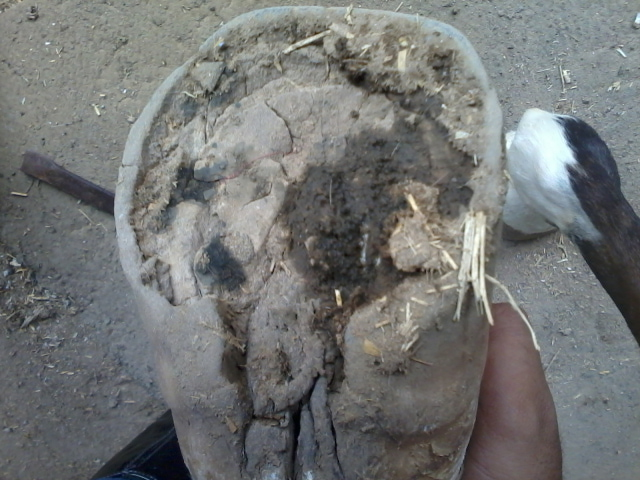 thrush on hoof
Question
thrush
hello. hope you can answer this
thrush on hoof
Question
thrush
hello. hope you can answer this
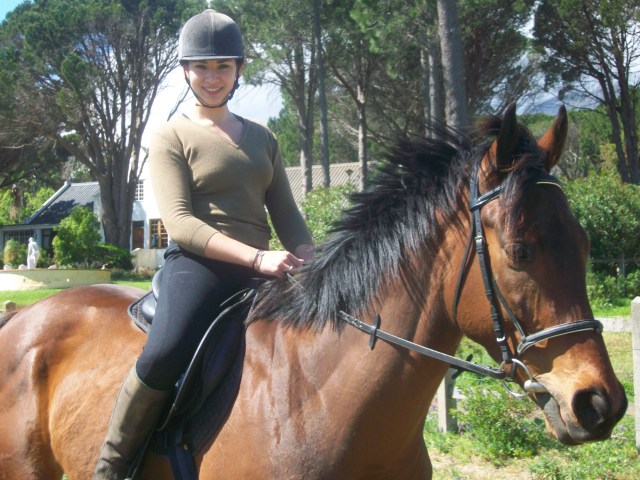 Bugs in my geldings mane.
Question
This is a recent pictu
Hi there
I live in Cap
Bugs in my geldings mane.
Question
This is a recent pictu
Hi there
I live in Cap
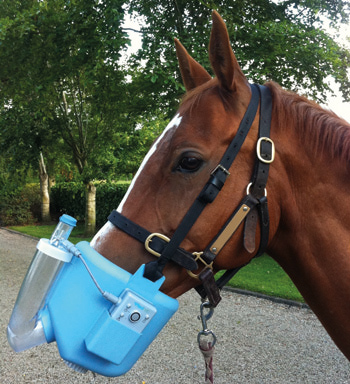 remedy for caugh and cold
Question
nebulizer
hello maam. what is the remed
remedy for caugh and cold
Question
nebulizer
hello maam. what is the remed
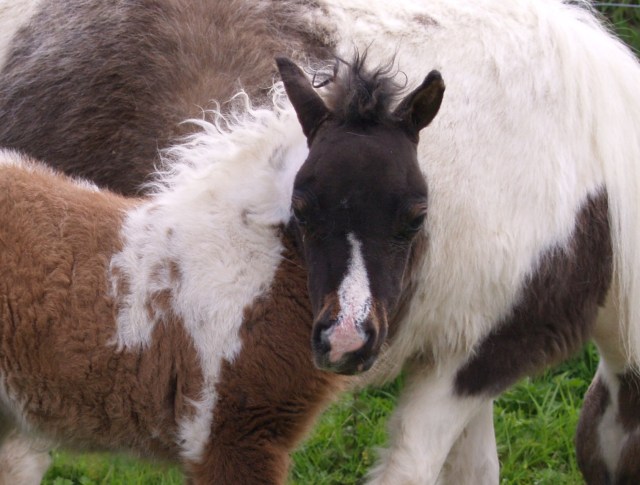 Facial nerve damage in a foal
QuestionAmerican Miniature Foa
QUESTION: Hello
I
Facial nerve damage in a foal
QuestionAmerican Miniature Foa
QUESTION: Hello
I
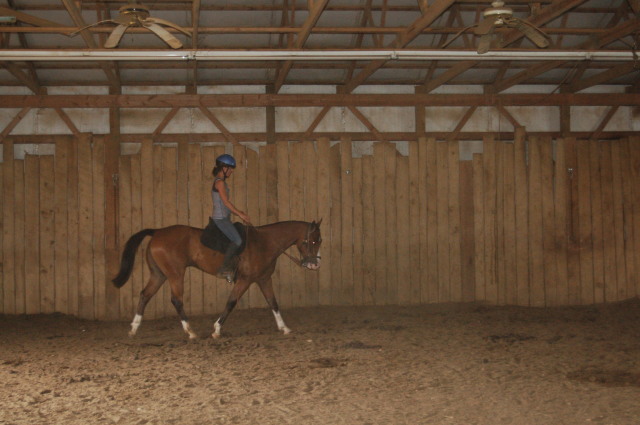 Bucking and running while longeing
QuestionRiding
QUESTION: I have a 7 yr unregiste
Bucking and running while longeing
QuestionRiding
QUESTION: I have a 7 yr unregiste